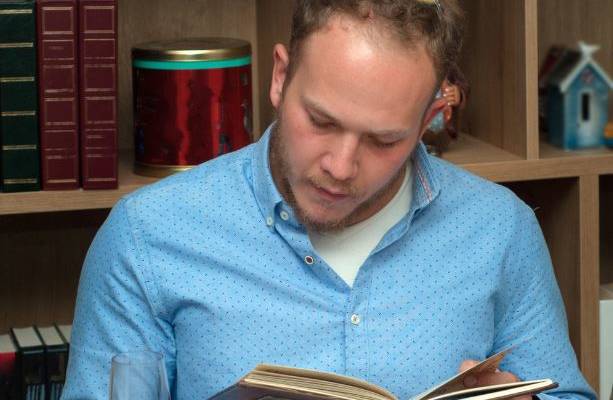Some explain that a blessing is indeed recited before beginning to read the Haggadah, though it is “hidden.” The reasoning is quite interesting!
By Rabbi Ari Enkin, Rabbinic Director, United with Israel
As a general rule, we always recite a blessing before performing a mitzva (Torah commandment). However, a blessing is not recited before the reading of the Haggadah, which is one of two Biblical mitzvot of the Seder night.
The other Biblical mitzva performed on the Seder night is the eating of matza, before which a blessing is recited.
Actually, most people would be surprised to learn that at one time a blessing was indeed recited before beginning the Haggadah. Yet the practice was discontinued, for which there are a number of reasons.
Some explain that the blessing is “hidden.” According to this approach, the Kiddush recited at the start of the Seder also serves as a blessing on the mitzva of Haggadah. This is because the wording of the Kiddush includes the words zecher litziat Mitzrayim (remembering the Exodus from Egypt), and the mitzva of Haggadah is entirely about “remembering the Exodus from Egypt.”
Furthermore, it might even be that merely saying the words zecher litziat Mitzrayim as part of Kiddush fulfills the mitzva of remembering the Exodus from Egypt, and therefore, since the mitzva has been fulfilled, a blessing may no longer be recited before beginning the Haggadah! This is because once a mitzva has been completed, the preliminary blessing may no longer be recited.
For example, one who lit the Chanukah candle(s) and then realizes that he or she did not recite the preliminary blessings may not recite them after lighting the candles (although the mitzva is still considered to be properly fulfilled).
Showing Appreciation
It is also noted that a blessing is not recited before performing interpersonal mitzvot such as visiting the sick, comforting mourners and giving charity. The reason, it is explained, is that such mitzvot are things that any good person would do even if there were no formal commandment as such. So, too, thanking God for our deliverance from Egypt is something that we would do even if there were no commandment to do so! Every fine person knows to show appreciation for favors rendered!
Another opinion is that we do not say a blessing on the Haggadah because there is no limit to the mitzva of telling the story of the Exodus from Egypt. One may fulfill the mitzva of remembering the Exodus from Egypt with a few words or by discussing it for hours – as we do at the seder table. A blessing is generally only recited on mitzvot that have a set measure.
Happy Passover! Chag Kasher v’Sameach!
Send Passover Packages to Needy Israeli Soldiers - Bring Them Joy!
We are honored to thank the young men and women of the IDF who risk their lives every day to protect the citizens of Israel. Since October 7th, soldiers have been on the battlefield for months - many are hoping to come home for Passover.
Join us in sending Passover food packages (and personal notes) to Israeli soldiers and their families.
Many soldiers spend the Passover holiday with needy families back home. The soldiers greatly appreciate your love and concern. Bring them Passover joy!
CLICK HERE TO SEND YOUR PACKAGE AND NOTE TO ISRAELI SOLDIERS!



